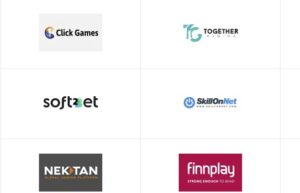To legally provide online casino services and market gambling products to customers, a legitimate gambling license is required. This license can be obtained from an iGaming software provider if a white label solution is chosen, or it must be obtained directly from an online gambling authority by the company itself. If you are interested in learning more about the top regulators in the industry and general information on online casino licenses, you have come to the right place. CasInnovate has all the essential details you need.

A gambling license is a permit issued by a regulatory authority, which authorizes an online gaming operator to conduct gambling activities. This document is required for any company offering gambling services, such as slot machines, casino games, lottery, poker, sports betting, and other forms of chance-based games. A valid gambling license serves as evidence that the operator is following established standards of security, fairness, and responsible gaming, as defined by the regulatory body that issued the permit. However, the specific requirements for a gambling license may vary depending on the jurisdiction. Each region’s specialized gambling committees have their own set of rules and regulations.This means that obtaining a license from a specific authority does not imply that your business meets the legal requirements for gambling operations in all jurisdictions. In other words, depending on the jurisdiction in which you wish to conduct your business, you may need more than one license. Why is a license required? A gambling license is essential if you wish to operate legally in a particular region without complications. It demonstrates your business’s integrity and commitment to fair gaming policies. Online casinos that are licensed regularly have their random number generator (RNG) software audited to ensure that the games are functioning optimally and that the return to player (RTP) rate is fair. Based on the results of this examination, a compliance certificate is issued. It is common for players visiting casino websites to first research where a casino is licensed before deciding whether to sign up. A casino license also indicates an operator’s transparency and reliability of the gaming software they provide.Additionally, if you wish to offer your players traditional and popular payment methods such as credit cards, debit cards and bank transfers, you will require a license. In order to process these payments, it is necessary to set up a merchant account with a bank. Banks are extremely cautious when partnering with businesses, and are more likely to work with companies that are regulated by a relevant authority in their jurisdiction. Some of the main reasons why a license may be required include: 1. Using casino gaming content from reputable suppliers in the white market. 2. Opening a bank account and merchant account. 3. Partnering with electronic payment systems. 4. Implementing effective marketing strategies to increase player conversion. 5. Improving your reputation and building player trust and loyalty. 6. Different licenses may be required for different jurisdictions.Every regulated iGaming jurisdiction has its own regulatory authority. These authorities oversee the gambling industry within their respective regions and have the authority to grant or refuse licenses. Although the specific names of these regulatory bodies may vary (e.g., gaming commission, gaming authority, etc.), they are collectively referred to as gaming control boards. Obtaining a gambling license begins with an essential decision: selecting the jurisdiction in which to operate an online casino business. Several regulatory authorities exist, with key differences including: – The requirements that the casino operator and gaming software must meet – The time required to process applications – The cost of the license Two main types of gaming licenses are available: international gambling licenses and local gambling licenses.International gambling license Also known as an offshore gaming license, this type of license is more suitable for iGaming businesses that intend to target a variety of markets, including those that are not regulated. Examples of countries that offer international gambling licenses include: – Malta: Malta Gaming Authority – Curaçao: Curaçao eGaming – Isle of Man: Gambling Supervision Commission – Kahnawake: Kahnawake Gaming Commission – Gibraltar: The Licensing Authority of the HM Government – Alderney: Alderney Gambling Control Commission – Antigua and Barbuda: Directorate of Offshore Gaming – Montenegro: Games of Chance Administration Local gambling licenses are also available in certain jurisdictions.This is a domestic or country-specific gaming license, which permits an iGaming business to operate legally within the borders of a single specific country. In many instances, local regulators may require that, in addition to holding the appropriate license for the casino, the gaming software providers it utilizes must also be licensed by the regulator. Examples of domestically regulated gaming markets include: – The United Kingdom – The UK Gambling Commission – Belgium – Belgian Gaming Commission – Spain – Directorate General for Gambling Regulation – Bulgaria – State Commission for Gaming – Romania – Romanian National Gambling Office – Sweden – Swedish Gambling Authority – Denmark – Danish Gambling Authority – Italy – Angenzia Delle Dogane e dei Monopoli No matter what type of license is deemed most suitable for your gaming operation, important considerations when selecting a jurisdiction should include:**Target Market** Where do the customers we primarily want to reach live? **Reputation** What is the overall reputation of the regulatory body in the industry among businesses and stakeholders? **Licensing Requirements** What do we need in order to be eligible for a license? **Application Process** How complex and time-consuming is the application process? **Total Costs** What are the initial investment costs, annual expenses, taxes, and any other potential fees involved? * **Helpful hint**: As a new online gaming platform, it is advisable to initially focus your player acquisition efforts on a select few markets rather than trying to market your brand worldwide. Competing with a limited number of brands in specific regions is more manageable than competing globally against thousands of rivals, including industry leaders. Start small and gradually expand your market presence as you grow.As we have previously mentioned, there are several gaming control boards around the world. To give you a better understanding of the regulatory bodies that exist, we will briefly look at some of the most well-known and popular international regulatory bodies in the gaming industry. Curaçao: Curaçao is the primary jurisdiction for issuing online gaming licenses. The Curaçao Gaming Control Board oversees the regulation of land-based casinos. Curaçao has been in operation since 1996 and offers a range of licensing and certification services.Obtaining a Curaçao online gaming license is considered one of the most advantageous options for establishing an online casino, as this regulatory body is highly flexible with regard to timeframes and costs (the total cost varies depending on a number of factors, as well as the master license holder that issues the license – there are four master license holders in total). It has a favorable tax system and permits operation in multiple jurisdictions, as well as supporting crypto payments. Furthermore, only one license is required, covering all forms of gambling. Here are some key facts about Curaçao’s eGaming online gaming license: – License issuance started in 1996 – Number of license types: 1 (sub-license) – Average cost: €20,000 – €25,000+ – Tax: 2% on net profits – Average time to obtain license: 6 weeks – Validity period: 5 years
Malta The Malta Gaming Authority (MGA), which regulates the gambling industry in Malta, was the first country in the European Union to introduce regulations for remote gambling and issue licenses for online gambling operations. It is one of the most respected and well-known regulators of online gambling in the world, and is known for its stringent standards and high level of professionalism. The MGA offers four types of licenses, including B2B (business-to-business) and B2C (business-to-consumer) licenses. Obtaining a Maltese license not only grants access to players in various jurisdictions, including those in unregulated markets, but also provides access to numerous banks worldwide, enabling the opening of merchant accounts for processing bank card transactions. Here are some key facts about the Malta Gaming Authority’s online gambling license: – License issuance started in 2004 – Four license types: B2B and B2C – Average cost: €36,000 – Tax: 5% on revenue from players in Malta – Typical time to obtain license: 12-16 weeks – License validity period: 10 years KahnawakeThe Kahnawake Gaming Commission is located in Canada and is not the country’s regulatory authority. Rather, Canada is a jurisdiction with no specific gambling regulations. Instead, gambling laws within the country are governed by the individual provincial and territorial governments. Since 1999, the Kahnawake Gaming Commission has been issuing online gaming licenses and is one of the earliest jurisdictions in the world for iGaming. To obtain a license from the KGC, an online gaming operator must have their operations hosted at Mohawk Internet Technologies, a data center located within the Mohawk Territory of Kahnawake, Quebec, managed by Continent 8 Technologies. Key facts about the Kahnawake online gambling license: – License issuance started in 1999 – Number of licenses and permit types: 6 – Average cost: $61,000+ – No tax – Average time to obtain a license: 4-8 weeks – License validity period: 5 yearsAlthough Gibraltar is an overseas territory of the United Kingdom, it has its own independent gambling laws and regulatory body, which means that it is not subject to the jurisdiction of the UK Gambling Commission. Instead, the Licensing Authority of the Government of Gibraltar, which is responsible for issuing online gambling licenses, operates under the Gambling Act of 2005. In order to obtain an online gambling license, operators must demonstrate their financial stability, submit a business plan, and be prepared to process player credit card transactions and pay out winnings exclusively through Gibraltar-based banks. Gibraltar’s online gambling licensing information: – License issuance began in 1998 – Number of license types: 4 (B2B and B2C) – Average cost: £100,000 for B2C licenses and £85,000 for B2B licenses – Tax rate: 1% – Average time to obtain a license: 3-6 months – License validity period: 5 years – Isle of ManThe Isle of Man is an island situated between England and Ireland, and is a dependency of the British Crown. As such, it is governed by its own laws and has its own regulatory body for gambling, the Gambling Supervision Commission (GSC), which was established in 1962. The GSC began issuing online gambling licenses in 2001, after it passed the Online Gambling Regulation Act. The Isle of Man’s gambling licenses cover all types of gambling activities, including both business-to-business (B2B) and business-to-consumer (B2C) licenses. There are four different types of licenses available, which a company can choose based on its specific goals and requirements. Here are some key facts about the Isle of Man GSC’s online gambling licensing program:Date of commencement of license issuance: 2001 Number of license types: 4 (B2B and B2C) Average cost: £35,000+ Tax: 0.1% – 1.5% of GGY (Gross Gaming Yield) Average time to obtain a license: 12 – 16 weeks License validity period: 5 years Note: Please note that the information regarding license costs is provided for general informational purposes only. License fees may vary depending on various factors, such as the requirement for separate licenses for each type of gaming (i.e., casino, poker, sports betting, etc.), application, renewal, and annual fees, as well as other fees. If you are interested in obtaining a gaming license, there are several options available: 1. Obtain a license independently 2. Obtain a sublicense 3. Choose a white label casino For more information on each option, please see below.As previously mentioned, each jurisdiction has its own set of laws and regulations regarding the issuance of gambling licenses. In general, if you are seeking a gambling license, you can expect the following: 1. You will need to demonstrate a good reputation, honesty, and integrity. 2. You will be required to provide comprehensive financial and organizational information, as well as details about your gambling establishment, owners, partners, and any other individuals associated with your business. 3. You must provide employment and criminal background information on yourself and any individuals within your organization who are involved in the business. 4. You will need to comply with specific regulations, which may include, but are not limited to: – Advertising guidelines – Payout of prizes – Gaming taxes – Customer privacy and data protection measures – Codes of conduct – Accounting and auditing requirements – Anti-money laundering measures – Testing requirements– Self-exclusion and other measures to promote responsible gambling – Remote technical and operational standards Whatever the specific requirements and standards are, they must be adhered to if you wish to obtain and maintain a license to conduct gambling activities. These strict requirements are in place to prevent those who are only applying for a license with criminal intent or who lack the financial stability and experience to adequately operate a gambling business from doing so. Most regulatory authorities make their application forms available on their websites or can be obtained by contacting their customer support.
If you are considering obtaining a license for your gaming operations, it is advisable to consult with a qualified legal professional. A local lawyer with experience in the iGaming industry can provide valuable guidance and assistance throughout the process. In some jurisdictions, sublicense agreements are available, which allow licensed operators to grant sub-licenses to third parties. This option can be advantageous in terms of reducing upfront costs and sharing the expenses associated with obtaining a license. However, it is important to carefully evaluate the terms and conditions of any sublicense agreement before proceeding. Alternatively, you may wish to consider partnering with a white label gaming platform provider. These companies offer pre-existing licenses and software solutions, eliminating the need for you to invest significant resources in obtaining a license from scratch.If you wish to completely bypass the regulatory process, you may consider purchasing a white label solution. Several of the gambling software providers reviewed by Casinnovate offer these solutions, which are essentially pre-licensed and ready to launch. The only area you are typically responsible for is marketing your casino brand, as the software company takes care of all other operational requirements. For more information on this solution, please see our article on white label casinos. How Much Does A Gambling License Cost? One of the first things you will likely notice when starting to research for a license is that these permits do not come at a low cost. You can expect to spend hundreds of thousands or even over a million dollars before the process is complete. The fees associated with obtaining a casino license usually include:The cost associated with applying for a license – The size of this fee typically depends on your identity and the complexity of your business. It is necessary to develop a business plan that takes into account social responsibility, safe custody of customer funds, measures against money laundering, due diligence on shareholders and directors, as well as certification of your technology and hosting provider. Each of these aspects requires funds and contributes to the lengthy application process. The cost of the actual license – The price of the license often reflects the government’s fiscal attitude in the relevant jurisdiction and varies from place to place. For example, Gibraltar charges a minimum annual fee of £85,000 based on 1% of revenue, up to a maximum annual fee of £420,000. In contrast, the UK’s annual license fee is lower than that of Gibraltar, but due to the 15% tax on revenue, it does not ultimately work out to be more affordable.The cost of compliance – Once you have paid for the application and license, that does not mean the fees are complete. On the contrary, you will need to continue paying for the license every year. Compliance costs include regular reporting to the regulatory authority, ongoing certification of new games, inspection fees, and having your random number generator software reseeded and recertified on an ongoing basis. The bottom line is that obtaining and maintaining an online gambling license requires a significant amount of capital and patience. Tips for Obtaining an Online Gambling License Here are some tips to consider before applying for a casino gaming license:Before choosing a regulator to apply for a license, it is important to identify which players you wish to target and conduct thorough research on the relevant markets. This will assist you in determining which products and software providers would be most suitable for your operation, thus allowing you to determine the type of license (international, domestic, or both) that you may require. Research the gambling jurisdictions where you intend to operate – Select the region(s) that best align with your business objectives, needs, and opportunities. Take the time to examine their regulations, requirements, tax policy, processing times for applications, costs, and other relevant factors. Ensure that the casino software you select complies with the requirements of the jurisdiction you have chosen – Licensing authorities have specific sets of rules and regulations related to the software used by casinos.For example, in most cases, the licensing authority will require the software you use to have the appropriate functionality to support a self-exclusion policy for casinos. You may need to be a locally registered company – the jurisdiction may require your casino to be operated by a legal entity based in the region. Prepare your personal documents in advance – to obtain a license, you will need certain personal documents, including a copy of your passport, proof of address, a reference letter from a bank, a certificate from the police stating that you have no criminal record, and so on. Ensure that the information on your website is clear and transparent – this includes preparing agreements with software providers, obtaining a certificate for the random number generator (RNG), and providing a detailed description of the features and functions of the games and software.It is a common practice for gambling jurisdictions to verify that the information required by their regulations is included on a casino’s website. This includes terms and conditions, a withdrawal policy, information on responsible gambling and self-exclusion policies, among other things. The more knowledge a person has about gambling licenses, the better they will understand the process of obtaining, holding and maintaining a license, as well as the different jurisdictions that may be suitable for their operation. Obtaining a casino license is essential for a gambling operator to operate in compliance with relevant regulations and laws. This can attract players who value transparency, fairness in the gambling process and secure financial transactions. A license provides integrity to an operation, establishes a reputation for respect in the industry, and can lead to loyalty among players.That being said, obtaining an online casino license independently requires effort and is a time-consuming and costly process. The more knowledge and preparation you have, the smoother the process will be. If you require assistance obtaining a gambling license, Casinnovate can provide a number of options for casino software providers who offer licensing consulting services with turnkey solutions for online casinos to assist you in selecting the appropriate gambling jurisdiction. These services may include assisting with the preparation of necessary documentation, ensuring that the software meets all regulatory requirements, and facilitating communication between you and the licensing authority. Alternatively, if you wish to launch your online casino quickly, easily, and at a low cost, a pre-licensed white label solution may be appropriate. Explore the iGaming providers offering the best white label casino solutions today.






